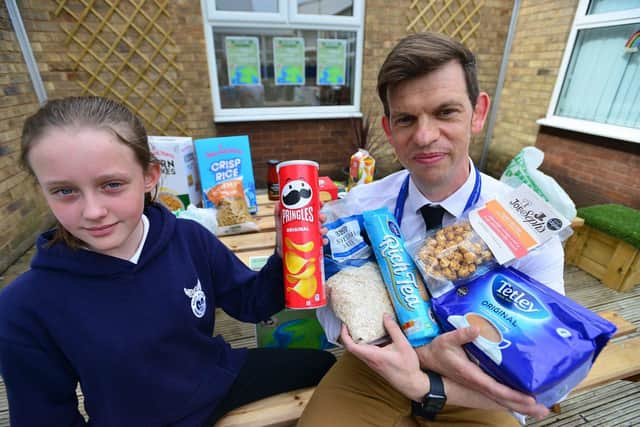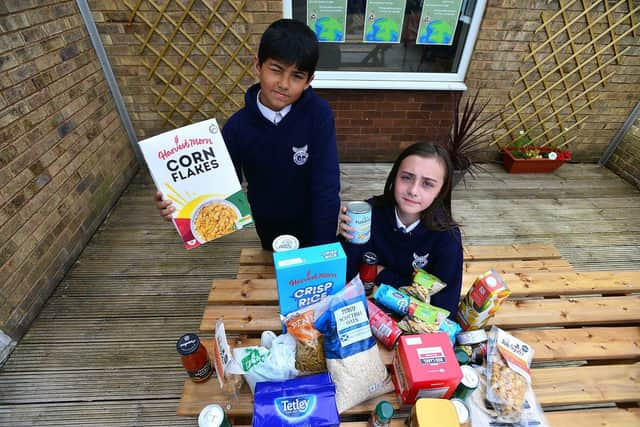Watch Sunderland schoolchildren help tackle cost of living crisis by redistributing surplus supermarket food
and live on Freeview channel 276
South Hylton Academy have signed up with the FareShare North East charity who collect would-be waste food from supermarket giants including Tesco, Sainsbury’s, Asda, Co-op and Waitrose.
Every year around 100,000 tonnes of edible food is thrown away – enough to feed around 30 million people. Food is often discarded as it approaches its sell-by-date or to make way for newer brands or products.
Advertisement
Hide AdAdvertisement
Hide AdUnder the FareShare scheme, Year 6 pupils at the school have been receiving and storing the surplus stock before repackaging for collection and delivery from the school’s Eco-Shop.
Bags of food are then sold to families for £2 - used to cover bag and delivery costs - or distributed for free to families identified as being in greatest need.
Head of School Chris Mitchinson said: “There are quite few schools involved in Middlesbrough, but as far as I’m aware we are the only school in Sunderland to be involved.
"We receive all sorts of produce which would otherwise go to waste including a range of circular blocks of cheese worth around £40 each. With the current cost of living crisis we are getting between 20 and 30 families each week.


Advertisement
Hide AdAdvertisement
Hide Ad"Each bag has between £10 and £15 worth of goods and last week we asked for supplies of fresh fruit and vegetables.
"This would all ordinarily just go in the bin and so it’s good for the children to experience a real world issue as well as learning skills of budgeting and stock taking.”
With “around a third” of the school’s pupil intake entitled to free school meals, as petrol, energy and food prices soar, there’s a particular need for support in the surrounding community. However the school has decided to make the service available for all.
Mr Mitchinson said: “It’s a struggle for most people at the moment, and while we know of some vulnerable families there will inevitably be others we aren’t aware of.”


Advertisement
Hide AdAdvertisement
Hide AdWhen the school applied to become part of the scheme six months ago, it was based on environmental ahead of economic reasons. As well as all the additional waste plastic and metal packaging, the decomposition of food in landfill sites releases methane, a greenhouse gas which contributes to climate change.
Mr Mitchinson added: “The children initially wanted to get involved to reduce waste and promote recycling. The economic and environmental aims now dovetail together.”
With deliveries arriving into the school on Mondays, a team of Year 6 pupils process goods ready to be distributed later in the week.
Spencer Johnson, 11, said: “It’s good that rather than going in the bin this food will end up on people’s kitchen table. There’s a lot of poverty and this will help with the cost of living crisis.”
Advertisement
Hide AdAdvertisement
Hide AdEmily Benson, 11, added: “As well as helping people who need food it also helps stop food and packaging going to waste.”
Deliveries of more exotic products have also provided an opportunity for children to try new foods.
Mr Mitchinson said: “Last week all our Early Years children got to try mango.”
The school is part of the Laidlaw Schools Trust.
Comment Guidelines
National World encourages reader discussion on our stories. User feedback, insights and back-and-forth exchanges add a rich layer of context to reporting. Please review our Community Guidelines before commenting.
